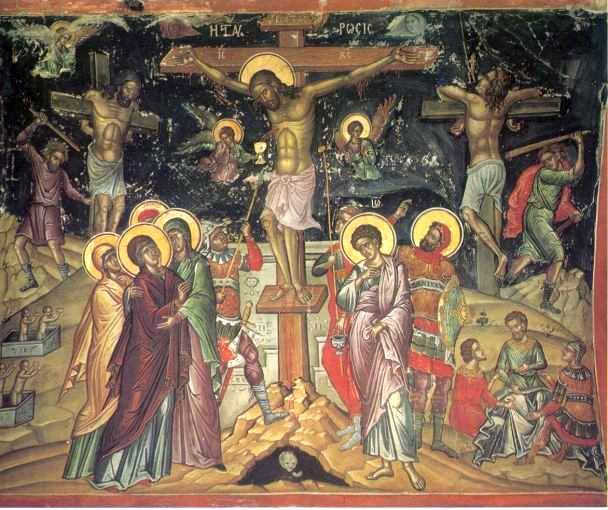Message of Abbot Paul - Sunday - 17th March 2024
Abbot Paul • March 16, 2024
The last two weeks of Lent are traditionally known as Passiontide, when the minds of Christians begin to focus on the final stages of our Lenten journey with Jesus, a journey that will take us through the events of Palm Sunday, Maundy Thursday, Good Friday and Holy Saturday to the glory, joy and hope of Easter Sunday. In the Liturgy and in our daily prayer and reading, we walk with Jesus as he walks with us, trusting in our heavenly Father and desirous to offer our lives with Jesus in sacrifice for the salvation of all people, especially those who are farthest from the faith. Now that phrase “offering our lives with Jesus in sacrifice” really means to love as Jesus loves with God the Father’s love in the power of the Holy Spirit who is love. Only our love will bring others to salvation and to new life in the Risen Christ. What a powerful and life-motivating thought that is. God wants us to be ablaze with his love and to share that love with others.
Today’s Gospel passage from John, (Jn 12: 20-33), presents us with Jesus speaking to his disciples about his imminent passion and death. They are in Jerusalem when he says to them,
“Now the hour has come
for the Son of Man to be glorified.
I tell you, most solemnly,
unless a wheat grain falls on the ground and dies,
it remains only a single grain;
but if it dies,
it yields a rich harvest.”
One of the constant themes in John is that of the death of Jesus as glorification, the way in which he will give glory to God the Father, who in return will glorify his Son. Hence the wonderful symbolism of the grain of wheat, that falls to the ground and dies, so that it might burst into life and bear much fruit. Not only does Jesus see himself as a such a grain, but his disciples too and all those who give up their lives with him and for his sake. Hence what follows:
“Anyone who loves his life loses it;
anyone who hates his life in this world
will keep it for the eternal life.
If a man serves me, he must follow me,
wherever I am, my servant will be there too.
If anyone serves me, my Father will honour him.”
The words love and hate are powerful words and evoke strong images, especially the word hate. What does it mean for a Christian to hate his life in this world? It means not preferring this life to the next, not preferring earth to heaven, but to have faith in the life to come, in fact, to begin living the life to come in the here and now. It’s not an easy concept to grasp and yet life is so fragile, so precarious, that perhaps we should put more store by it than we do. What a privilege it is to follow Jesus and to know that we will be honoured by the Father, indeed that we are already honoured and loved eternally by him.
Suddenly, unexpectedly, Jesus feels the anguish of the moment. Jesus shows us time and again that he can be perplexed or saddened and that he can share our human emotions, doubts and fears. He says;
“Now my soul is troubled.
What shall I say:
Father, save me from this hour?
But it was for this very reason that I have come to this hour.
Father, glorify your name!”
He will not ask to be saved from this moment, as he knows that this is his destiny, his purpose, his vocation: obedience and submission to the Father’s will, which is the ultimate good and perfect love. At that moment, just as at his Baptism and at the Transfiguration, the Father’s voice is heard. “A voice came from heaven, ‘I have glorified it, and I will glorify it again.’ People standing by, who heard this, said it was a clap of thunder; others said, ‘It was an angel speaking to him.’ Jesus answered, ‘It was not for my sake that this voice came, but for yours.’” The Father’s words are described by Jesus as a “sentence… passed on this world,” for “the prince of this world is to be overthrown.” In death he sees life, in defeat he sees victory. This is the very essence of Christian hope. Jesus ends the discourse with a promise that will give heart to his disciples and hope when all seems lost.
“And when I am lifted up from the earth,
I shall draw all men to myself.”
They realise now that, “By these words he indicated the kind of death he would die.”
Lord, through your death and resurrection, you have set us free from sin and death. Grant us the grace to live by faith, walk in hope and serve with love. May we come to say with St Paul, “It is no longer I who live, but Christ who lives in me.” Amen.












